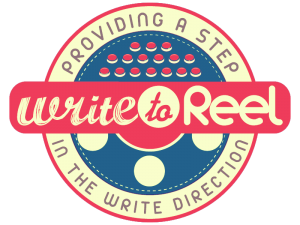An excerpt from my script review for First Reformed which will be available 02/04/19:
2.) Plot Stability
Ideas kick around all the time in our heads. Some good, some bad.
The good ones are what drive us to commit words to (digital) paper.
One of the main issues we come across is those plots, themes, characters are never the ideals we have in our mind’s eye.
(Even as I sit down to write this review thoughts I had last night, this morning, etc. that were “brilliant” then won’t translate exactly how I wanted when you read through later.)
That’s what happened to this story.
The theme that was attempted, as I see it, was to present the value and qualities of “church” as an institution in the past contrasted with what it has become today.
A noble venture, but instead of an original story, what we were given was just eighty seven pages of common day Christian stereotypes, most of which were pretty fucking depressing.
A priest who drinks and commits “sin” via his lust for the flesh?
That same priest having a tragedy occur in his life that makes him question his faith in the Almighty causing an inability to pray?
A “mega church” run like a self-help business backed by a larger corporation?
That same large corporation dealing in energy and not wanting to admit to global warming and/or climate change?
Jesus “zealots” who think America was founded by Christ himself?
The list goes on, and in addition to not delivering the quality that was in the writer’s head before sitting down to type, the plot tried to tackle too much.
As writers, the fewer arcs we focus on the better.
Following that line of thinking, Toller was too much a stereotype for me to actually care about him.
He didn’t really witness anything tragic as far as I could tell, aside from him discovering Michael after the suicide, but even then it didn’t have any real affect on him.
Sure his son died in Iraq, but how is that strife any different than any other Gold Star family? Toller didn’t force him into the situation. Tragedy for tragedy’s sake is just another plot point, not something that makes Toller jump off the page.
To me it felt like my experience with Book of Mormon.
(My apologies to those of you who have heard this before.)
The boss and I went to NYC to see it, and were very excited, both hearing good things and enjoying the satire present in South Park.
What we witnessed though was barely funny, and the question that rose to my mind was, “Can black people wear black face?”
During the big dance number of Fuck God, where this African village has so many problems that religion is the furthest thing from their minds, the audience was in stitches.
“Ha ha! Mormons are stupid!”
The issue though is the black actors playing these poor, sick villagers are individuals living here. They may be “poor’ by New York City’s living standard perhaps, but none of them have the real life experiences that afflict some of the third world nations in Africa.
What they’re portraying is a stereotype.
A stereotype that a predominantly white audience laughed at.
Let me clarify, I meditate and pray each morning, but am in no way an adamant organized religion supporter. I see the good, and I admit there’s bad.
But what this script is doing by presenting these stereotypes, just like Book of Mormon, is making an argument devoid of facts and full of generalizations.
“Organized religion is bad.”
Okay, show me some examples.
“I don’t have specifics, but you and I both know these things go on.”
And there’s probably truth in that argument, but as “left-leaning Hollywood” tries to make the argument presented in First Reformed by tossing any and every Christian stereotype at the wall to see what sticks, in actuality all that’s being accomplished is becoming a stereotype yourself for the other side:
“Liberals hate Christians.”
Final thought on this topic, the brilliance of stories like Spotlight is the argument there is based in fact, so it has more weight to it. There you can argue organized religion is bad because people defend the establishment they choose to identify with over what is right.
If you’re going to make an argument, have some sort of truth in it. If you’re going to entertain, don’t pack your story full of your life’s agenda.
Want EARLY access to our videos, uploads, and movie/script reviews? Members get them FIRST! Follow this link to our Discussion Forum.
And be sure to check out our Notes Service, where I give my detailed thoughts and suggestions on your script.





